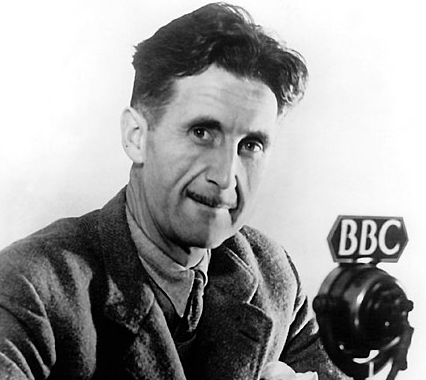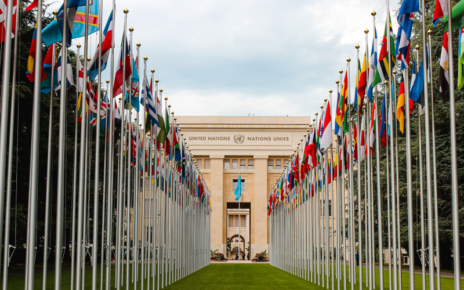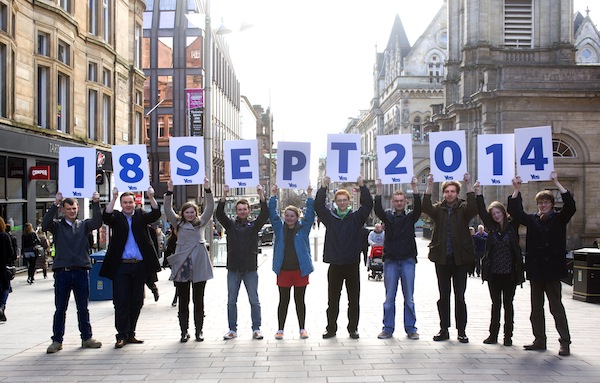In recent years, George Orwell’s classic dystopian novel 1984 has seen two unprecedented surges in sales of such a startling magnitude that, looking at the isolated incidents out of context, one might even begin to doubt the legitimacy of Amazon’s algorithm. Situating these spikes alongside the corresponding news of the day, however, a clear correlation emerges. Sales of 1984 erupt and erode in direct response to media coverage of issues relating to surveillance and authoritarianism.
The first spike, spurred by public interest in the Edward Snowden-NSA scandal, yielded a 7,000% increase in sales of 1984 on Amazon. The second, propelled by Donald Trump’s inauguration and topped off by Kellyanne Conway’s assertion of “Alternative facts”, induced an even greater 9,500% increase, with an ensuing printing of an additional 75,000 copies to ease demand. In both instances, the book rose to the #1 spot on Amazon’s best seller list.
These cycles of popularity have been so astonishing that in 2014, for the first time in more than five years, 1984 joined the ranks of Amazon’s Annual 100 Best Selling Books, claiming the 84th spot. Then, after gradually dwindling off in 2015 and 2016, sliding down the rankings to the 89th and 94th spot respectively, it once again climbed back up to the coveted 17th spot, before plunging off the list once again in 2018.
To put the sheer abnormality of 1984’s 2017 ranking into perspective, it was one of only four works from the 20th century in the Top 20, two of which had specific reasons for being there: The Handmaid’s Table ( ranked #11, published 1998), was basking in the glow of a revival resulting from its recent television adaptation, while How To Make Friends And Influence People’s (ranked #18, published 1936) was celebrating its 80th anniversary.
But why do 1984 sales rise, and fall, at a seemingly farcical rate in accordance with specific stories about authoritarianism in the media? The answer may very well be rooted in the psychological phenomenon of mere-exposure theory, alternatively known as the familiarity principle in the social psychology realm. The theory, pioneered by Polish-American psychologist Robert Zajonc, holds that people tend to develop a partiality towards certain things simply because they are more familiar with it. As humans, we are drawn to things we can relate to. At no point since its initial publication, in North America at least, has democracy been under such threat as it is today. This somber reality seems to explain the drastic increase in sales.
In both instances, the media was quick to shed light on the ever-developing similarities between contemporary events and Orwell’s dystopia. The NSA scandal prompted The Guardian’s Editor-in-Chief Alan Rusbridger to claim that “NSA surveillance goes beyond Orwell’s imagination,” while The New Yorker published a feature asking, “So Are We Living In 1984?” In 1984, the theme of government-sanctioned surveillance is everywhere, with the propagandist mottos “Big brother is watching you” and “All-seeing eye” being plastered omnipresently around Oceania’s Air Strip One, where the book takes place. In light of the NSA scandal, the idea of the all-seeing, all-hearing, “telescreens” – the Ministry of Truth’s main vessel to both proliferate state-propaganda and observe every move, word and thought of its subject – appear frightfully similar to the government “monitored” cell phones we have today.
The media erupted once again in response to Trump’s inauguration, with what seemed to be every major news outlet jumping on the obvious connections to Orwell’s novel. Examples include:
The Atlantic – “What It’s Like Teaching 1984 After Trump’s Election”
CNN – “How 1984 Can Decode Trump’s First 100 Days”
The New Yorker – “Orwell’s 1984 and Trump’s America”
New York Times – “Why 1984 Is A 2017 Must-Read”
The Washington Post – “Why Orwell’s 1984 Matters So Much Right Now”
Lines from the work such as “The party told you to reject the evidence of your eyes and ears. It was their final, most essential command,” ring all to true in a world where Trump insists climate change “Was created by and for the Chinese,” that he “Won the popular vote if you deduct the millions of people who voted illegally,” and that he had the largest inauguration crowd of all time.
Further, Dr. Peter Stansky, a History Professor at Stanford University and Orwell biographer, notes how the idea of so-called “Alternative Facts” sound “Very Orwellian, very ‘Newspeak:’” the official language of Oceania meticulously crafted to weed-out all possibilities for free-thought and insurrection.
In 1944, Orwell warned of “The horrors of emotional nationalism and a tendency to disbelieve in the existence of objective truth.”
If he were alive today, it is unlikely that Orwell would be pleased to see how relevant his book remains.
Featured Image: George Orwell in BBC 1940. (1940) by BBC, via Wikimedia Commons.
Disclaimer: Any views or opinions expressed in articles are solely those of the authors and do not necessarily represent the views of the NATO Association of Canada.




